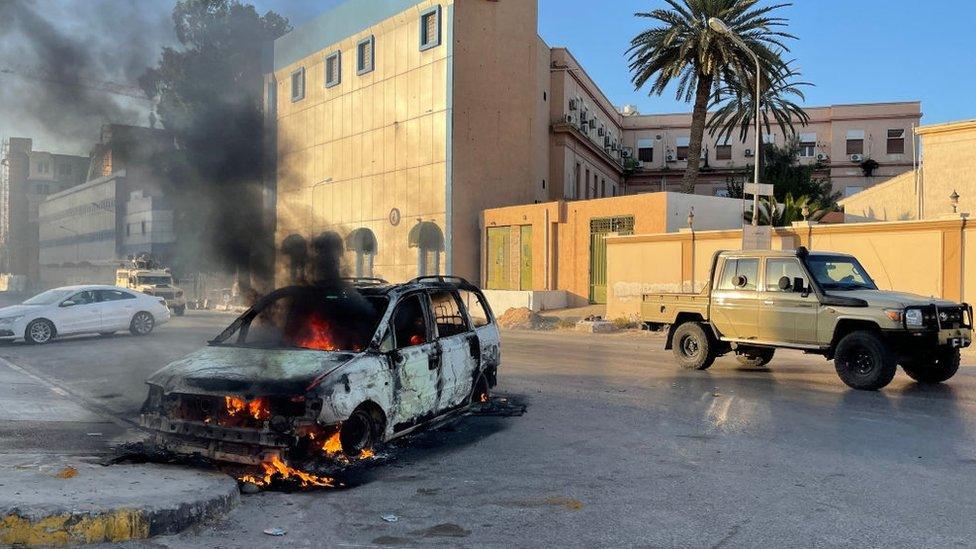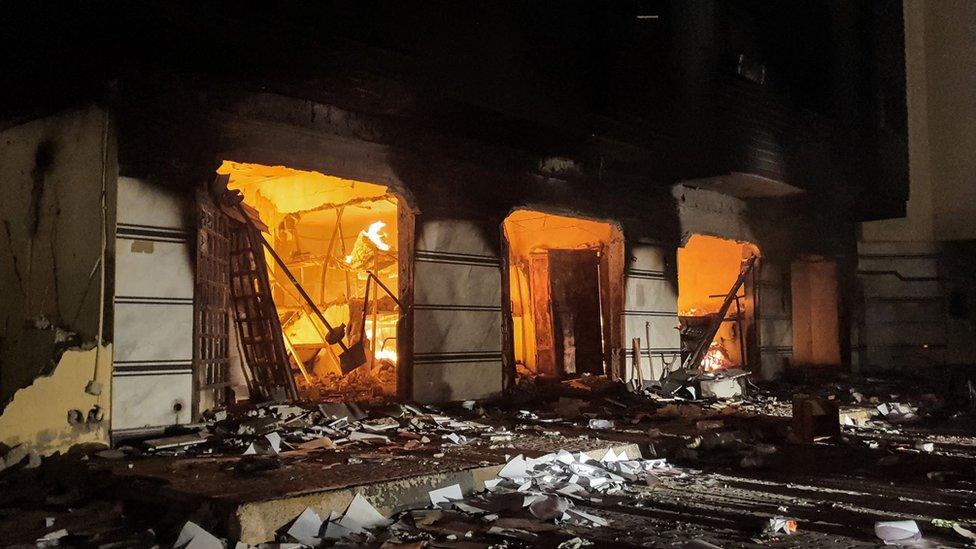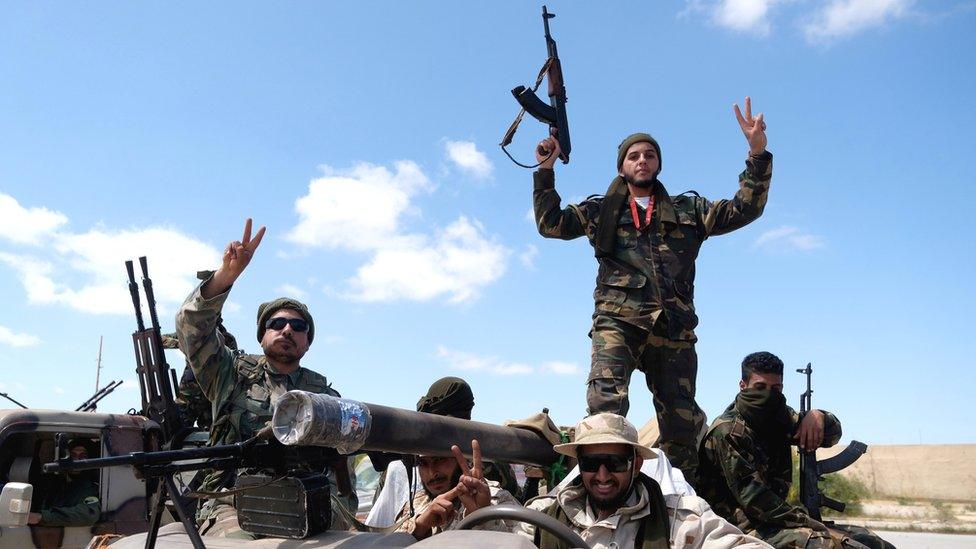Libya clashes: UN calls for ceasefire after 32 killed
- Published

A damaged vehicle in Tripoli on Saturday
The UN has called for an immediate stop to hostilities in Libya following a day of deadly clashes between political factions in the capital, Tripoli.
At least 32 people were killed and dozens more wounded during the fighting, the health ministry said.
Among the dead was young comedian Mustafa Baraka, an official said.
Libya has been in chaos since the Nato-backed uprising in 2011 that ousted long-serving ruler Colonel Muammar Gaddafi.
Despite this, the country had enjoyed a relatively calm period over the past two years.
On Saturday, armed forces of the internationally recognised government tried to push back a convoy of militia loyal to Fathi Bashagha - the man who is recognised as prime minister by a rival, eastern parliament and is vying for control of the country.
There were reports of small-arms fire and explosions in several areas of the capital. Black smoke could be seen rising across the city.
Emergency services said a number of hospitals had been hit. People were also evacuated from areas around the fighting.
On Sunday, there was quiet in the capital.
The UN's Libya mission said the fighting had included "indiscriminate medium and heavy shelling in civilian-populated neighbourhoods" and called for an immediate ceasefire - which was backed by the US ambassador to Libya, Richard Norland on Saturday.
The oil-rich country once had one of the highest standards of living in Africa, with free healthcare and free education.
But the stability that led to its prosperity has been shattered and Tripoli has seen frequent fighting between rival forces since 2011.
Allow X content?
This article contains content provided by X. We ask for your permission before anything is loaded, as they may be using cookies and other technologies. You may want to read X’s cookie policy, external and privacy policy, external before accepting. To view this content choose ‘accept and continue’.

You may also be interested in:
Special correspondent Feras Kilani on what it's been like to cover Libya since Colonel Gaddafi was deposed and killed more than a decade ago
Related topics
- Published2 July 2022

- Published23 January 2020
